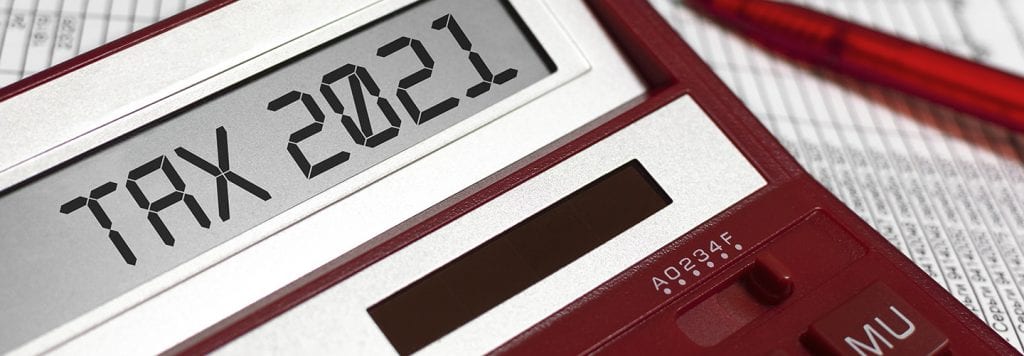
DeWine Passes S.B. 18 To Incorporate Federal Changes Into The Ohio Tax Law
Businesses (and tax preparers) can breathe a sigh of relief now that Ohio Gov. Mike DeWine has finally signed Senate Bill 18 (S.B. 18) into law. The new Ohio tax law, which was officially signed by Dewine on March 31, 2021, incorporates changes made at the federal level into Ohio’s tax law. Many of the federal tax law changes in question include those that go back all the way to March 27, 2020, which was the date of Ohio’s last Internal Revenue Code Conformity Date. Because S.B. 18 is emergency legislation, changes are enacted into law immediately.
What this piece of legislation primarily does is incorporate many of the taxpayer-friendly provisions of the Consolidated Appropriations Act and the American Rescue Plan Act into Ohio law. This bill was necessary due to the fact that Ohio is a “fixed-date” conformity state, which means the Buckeye State doesn’t automatically conform to federal tax updates.
Many practitioners and businesses have been eagerly awaiting the passage of this bill, which will allow business income tax returns to be filed without adding back any PPP expenses that were deemed deductible at the federal level. In some cases, this can result in a million-dollar-plus increase in taxable income, depending on the amount of PPP proceeds a taxpayer received.
If you have already filed your Ohio business income (or individual income) tax return, Consider amending your tax return to add these disallowed expenses back. Doing so could result in reduced tax liability … and maybe even a refund.
Read Also: How The Consolidated Appropriations Act Will Impact Your State & Local Tax Filings
What Updates Are Included In S.B. 18?
S.B. 18 makes some key retroactive changes for Ohio taxpayers. Some of the notable federal law updates include:
- Deductibility of Paycheck Protection Program (PPP) expenses for businesses that have had their PPP loans forgiven.
- Temporary exclusion from gross income for the first $10,200 received in unemployment benefits for taxpayers with $150,000 or less in Federal Adjusted Gross Income (AGI).
- An extension of the temporary allowance of a deduction for charitable contributions by non-itemizers.
- The temporary allowance of a full deduction for business meals (generally, business meals are only 50 percent deductible).
- An extension of the limitation on excess business losses for non-corporate taxpayers.
- An exclusion from gross income for Restaurant Revitalization Fund (RRF) grants and targeted Economic Injury Disaster Loan (EIDL) advances.
In addition to incorporating recent Federal changes, the bill also:
- Exempts “second draw” PPP loan amounts forgiven under the Consolidated Appropriations Act or 2021 from the Commercial Activity Tax (CAT).
- Exempts the Bureau of Workers’ Compensation (BWC) dividends paid to employers in 2020 and 2021 from the Commercial Activity Tax.
- Allows individuals to elect to have state income tax withheld from their unemployment benefits beginning on Jan. 1, 2022.
- Sets the rate of a withholding tax paid by certain pass-through entities on a percentage of its nonresident investors’ distributive income equal to the income tax rate on taxable business income, effectively reducing those withholding rates. This change applies to tax years beginning on or after Jan. 1, 2023.
Listen to episode 275, “Ohio’s State and Local Tax Update,” on unsuitable on Rea Radio, Rea & Associates award-winning weekly accounting and business consulting podcast.
In addition to incorporating the federal changes outlined above, Ohio now allows employers to exclude Bureau of Workers Compensation (BWC) refunds paid to employers in 2020 and 2021 from their Ohio Commercial Activity Tax (CAT) base. Any returns previously filed with these receipts included in the base should be amended, which would allow you to claim a refund for taxes paid on these gross receipts.
Ohio is also lowering its part-time employee withholding rates from 5 percent for individual investors and 8.5 percent for non-individual investors to 3 percent for both types of investors beginning on Jan. 1, 2023. This will be a welcome change for taxpayers who file the return. Non-resident business owners who file in Ohio are ultimately taxed at the business income rate of 3 percent (or not at all) if their Ohio income is below the Ohio Business Income Deduction threshold. Businesses will no longer be required to give the state an “interest-free” loan by having to withhold at sometimes more than twice the rate of where the individual will ultimately be taxed.
Finally, S.B. 18 brings the new 2021 tax deadline in line with the federal tax deadline, which was moved to May 17, 2021. This change was announced on Wednesday. According to a news release, similar to the IRS’ extension, Ohio will also proceed with waiving the penalty on tax due payments that are made during this extension. Even so, taxpayers must remember that their estimated tax payments for the first quarter of tax year 2021 must still be made by April 15, 2021.
By Lamarcus Crowders (Dublin CPA Firm)
Looking for more business tips and insight? Check out these resources:
[ARTICLE] PPP Loan Application Deadline Extended
[PODCAST] Busy Season Just Got Busier: Tax Updates, Deadlines, & Biden’s Plan
[ARTICLE] The PPP & ERC Can Work Together For Maximum Relief
